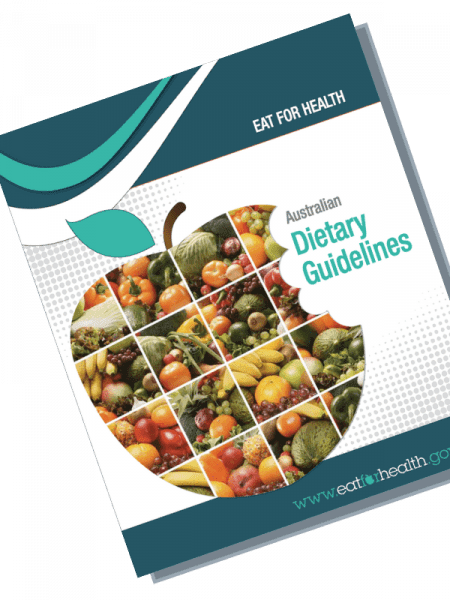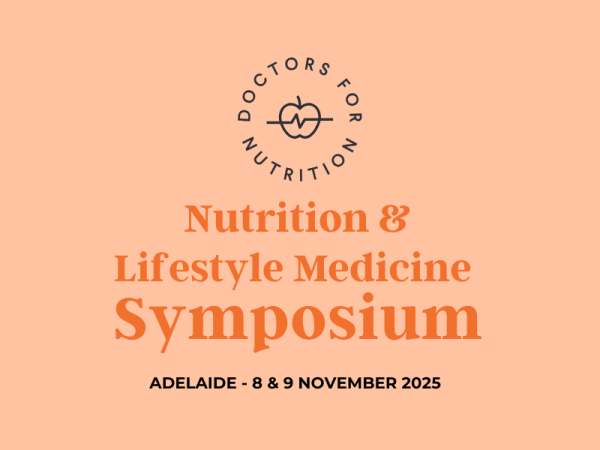A new plate for Australia
How Doctors For Nutrition are advocating for our health and climate revival
With the release of the new Australian Dietary Guidelines in 2026, Doctors For Nutrition is well-positioned to offer the Australian community tools to transition to a whole-food, plant-based diet, thereby improving public health. Guidance on plant-predominant eating patterns, climate and environmental impacts, and practical educational support is expected to be included in the review.
Responding to new guidelines
With the review of the 2013 Australian Dietary Guidelines now underway, Doctors For Nutrition has submitted evidence and actively participated in stakeholder consultations, advocating for stronger recommendations of plant-based proteins and integration of environmental sustainability into national nutrition advice. Our submissions urge updates to food groups, replacing red meat and dairy with nutrient-rich plant-based options, and call for a clearer emphasis on the health and affordability benefits of plant-predominant diets.
A draft of the new Australian Dietary Guidelines is scheduled for release for public consultation in 2025, providing stakeholders, experts, and the broader community with an opportunity to provide input before finalisation. Doctors For Nutrition will participate in this vital process by carefully reviewing the draft and submitting evidence-based feedback, championing recommendations that highlight plant-based eating and environmental sustainability. Our ongoing involvement ensures that robust scientific and health perspectives help shape national dietary advice for all Australians.

Plant-based proteins in global nutrition guidance
Plant-based proteins—legumes, nuts, seeds, and whole grains—are being prioritised in worldwide dietary guidelines due to overwhelming evidence of their health and environmental advantages. The latest US Dietary Guidelines Advisory Committee recommends listing these foods first in the protein group, aligning with global models like the EAT-Lancet Commission’s “Planetary Health Diet.” This shift helps support chronic disease prevention and provides more sustainable options for populations everywhere.
Dietary guidelines worldwide are shifting to incorporate more plant-forward nutrition recommendations, a trend highlighted by a comprehensive global analysis published in Current Developments in Nutrition. The study assessed 95 national dietary guidelines and found that, while a minority (40%) of countries have an explicit position on vegetarian diets, nearly half already mention plant-based alternatives to meat and milk.
More recent guideline updates are responding to scientific evidence and global sustainability goals, encouraging a transition away from animal proteins and toward legumes, nuts, seeds, and whole grains as key sources of nutrition. The tendency to recommend plant-based options is strongest in countries that prioritise environmental efforts, and weakest where animal agriculture remains economically dominant. Expanding dietary guidelines to better include plant-based diets not only supports better health but also substantially reduces premature mortality and greenhouse gas emissions—underscoring the case for nutrition policy reform worldwide.
Climate change:
A dire national challenge
Climate change is imposing catastrophic costs on Australians.
The National Climate Risk Assessment finds that, unless rapid action is taken, severe impacts such as quadrupled extreme heatwaves, skyrocketing heat-related deaths, increased disaster recovery costs, marine heatwave devastation, and extensive coastal flooding will escalate sharply by 2063–2090. Aboriginal and Torres Strait Islander communities face heightened vulnerability, and national productivity may shrink by hundreds of billions due to climate-driven disruptions. Cutting climate pollution from fossil fuels is essential but diet is also key—plant-based eating patterns dramatically lower greenhouse emissions, protecting both people and the planet.
How plant-based diets help

Moving to a plant-based dietary pattern can make a substantial impact on health and sustainability in Australia. Global modelling shows that if everyone shifted toward plant protein sources, greenhouse emissions would fall by up to 17%, a move highlighted as essential for combating climate change in national and international recommendations. Nutritionally, plant-based diets help reduce the risk of heart disease, type 2 diabetes, and certain types of cancer, while also lowering environmental and economic burdens. To learn more about how our food systems contribute to climate change, read our recent article on the topic.
Doctors For Nutrition’s role and resources
Doctors For Nutrition provides extensive educational materials, workshops, webinars, and practical resources to help Australians adopt a plant-based diet. Our programs equip both the public and healthcare professionals with the necessary information and tools to make lasting dietary changes that benefit both human and environmental health. These resources, designed to demystify plant-based eating, provide meal planning support, and empower individuals and communities to take action in line with emerging national guidelines.
Doctors For Nutrition are proud to have submitted high-quality evidence and are invigorated by the opportunity to help shape the new Australian Dietary Guidelines. As the guidelines evolve to reflect the latest science and sustainability imperatives, our educational resources will be critical for ensuring Australians achieve better – and greener – health outcomes for the future.




